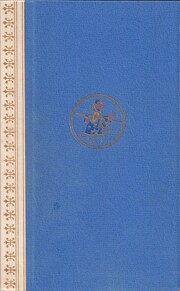

Click on a thumbnail to go to Google Books.
|
Loading... The Song of Roland (edition 1938)by Hamish Miles (Introduction), Valenti Angelo (Illustrator)
Work InformationThe Song of Roland by Turoldus (Author)
 » 16 more Epic Fiction (15) Books Read in 2021 (3,475) al.vick-parents books (147) CCE 1000 Good Books List (483) Generation Joshua (80) Unread books (593) No current Talk conversations about this book.  I like when non-fiction authors unintentionally give insights into their own lives and times when writing about other times. Reading the intro, my catch-phrase became "Who hurt you, Dorothy?" due to her regular asides on the behaviour of "modern" man (we're talking about the 1940s here). Anyway, I looked her up on Wikipedia and it turns out it was men. Men hurt Dorothy. Anyway, the substance of the poem. I enjoyed the translation, the rhythm and assonance, it was pleasing to read. The quality of the content was probably just fine in its time, recited aloud to audiences hungry for a heroic tale of national pride. However it lack the nuance craved by the modern analytical reader - the heroes are all objectively right, the villains are objectively villainous, everyone including his enemies knows it to be true that Roland is the greatest knight in Charlemagne's entourage. There's no variety of perspective or motive for the conflict beyond the actors playing their assigned roles. Interesting elements: the existence of black African soldiers fighting in medieval Europe, the ultra-violence, the imagery of the beautiful flowered meadow become a place of sorrow and carnage. After his vassals screw things up yet again, Charlemagne tramples infidels as an instrument of God. You could write an excellent freshman English paper about how proud Roland and his traitorous step-father, Ganelon, are the dual victims/villains of this epic. Ganelon is the explicit villain, but Roland is just as much a proud individualist who disregards the tenets of his vassalage (despite Oliver's hissed injunctions to summon reinforcements with his horn) for the sake of his personal honor and distinction. Charlemagne's modern society calls for individual desires to be subsumed within the greater good of the state and the greater glory of God. Ganelon betrays that ideal for an old-fashioned blood vendetta; Roland betrays that ideal from hubris. But more importantly, in the Song of Roland Drinking Game, every time a beard is mentioned, you drink. (Two drinks if it's Charlemagne's beard and described as "hoary" or "white.") no reviews | add a review
Belongs to Publisher SeriesIs contained inInspiredHas as a student's study guideNotable Lists
Since his youth, living in poverty in a cave in Italy, Roland's mother has taught him that someday he will be a brave hero like his father, Milon, and serve with the great army of Charlemagne. He learns from her that he is descended from great heroes of old and that his mother is Charlemagne's sister, the Princess Bertha. When Charlemagne comes to Italy, Roland confronts the king, who rejoices to find his long-lost sister and gives both her and her son a place of honor in his court. As Roland becomes a man and a knight, he embarks on a quest to the Far East and becomes champion to the Princess of Cathay. One of the great medieval "songs of great deeds," this is a composite of several hero legends interlaced with Christian moral sentiments. A remarkable panorama of medieval life and thought, The Song of Roland truly reflects the spirit of the times. No library descriptions found. |
Current DiscussionsNonePopular covers
 Google Books — Loading... Google Books — Loading...GenresMelvil Decimal System (DDC)841.1Literature French & related literatures French poetry Early French 842–1400LC ClassificationRatingAverage: (3.65) (3.65)
Is this you?Become a LibraryThing Author. |
||||||||||||||||||||||||||||||||||||||||||||||||||||||||||||||||||||||||||||||||||||||||||||||||||||||||||||||||||||||||||||||||||||||||||